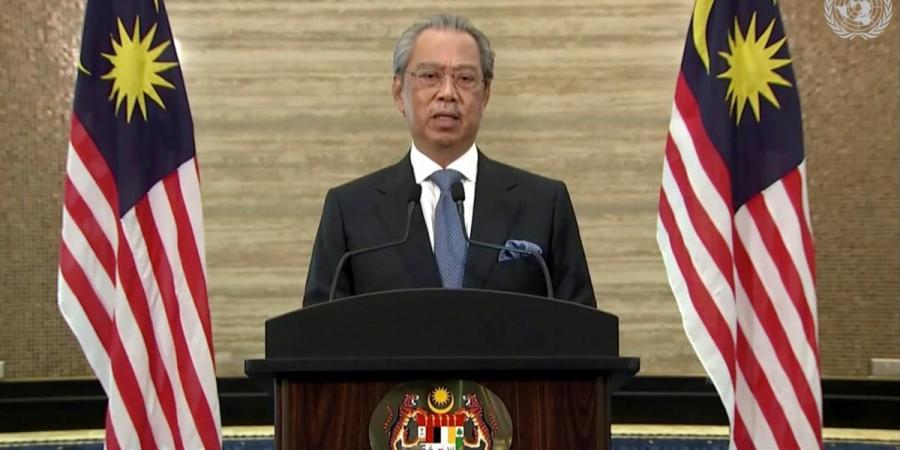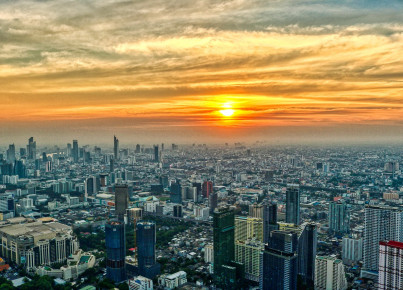After the end of the state of emergency, there is only one month left for the Malaysian Prime Minister to launch the vaccination campaign which could save his political life.
Just over one-and-a-half year ago, Malaysia's most popular politician, Muhyiddin Yassin, was unknown to many if not most. However, Muhyiddin, 74, who became the Prime Minister on March 1, 2020, is not exactly a newbie in Malaysian politics. After joining the United Malays National Organization (UMNO), the former dominant party, in 1971, Muhyiddin, "a very serious and boring man", managed to get through the major political transitions which have occurred in the country over the last fifty years.
In 2016 he was kicked out of UMNO for criticizing then-Prime Minister Najib Razak, who was involved in an international corruption case. In the May 2018, he played a crucial role in the election victory of the Alliance of Hope (Pakatan Harapan, PH), the pact of opposition parties which ousted UMNO from power for the first time since Malaysia's independence in 1957. However, not even two years later, the power struggles within the new government coalition and the miscalculations of the 94-year-old Mahathir Mohamad, a former Malaysian strongman who returned to power in the 2018 democratic revolution, the PH government collapsed. Muhyiddin won the support of his former UMNO colleagues and emerged as a compromise candidate for the premiership.
Muhyiddin – the official spelling is Mahiaddin – was born in 1947 in the state of Johor, at the southern end of the Malay Peninsula, then a British colony. His father, Muhammad Yassin, was an influential Muslim cleric belonging to the Malay ethnic majority. After graduating in economics and Malaysian studies at the University of Malaya, Malaysia’s oldest university, Muhyiddin joined the young generation of UMNO politicians led by Anwar Ibrahim, who was then climbing up the party hierarchy by promoting religiously-inspired pro-Malay policies.
In 1978, Muhyiddin entered parliament as a representative of the Pagoh district, whereas in 1986 he was appointed Menteri Besar, the chief minister of the state of Johor, where he built his electoral base. In 1995, he joined the cabinet of then-PM Mahathir as Minister of Youth and Sports and remained in government for the following twenty years, leading several departments under various prime ministers, until he was sacked by Najib in 2015 and expelled from UMNO the following year.
As Oh Ei Sun, a senior fellow at the Singaporean Institute of International Affairs, rightly pointed out, at that point most of the other members of the cabinet were still supporting Najib. Muhyiddin however realized the growing social outrage over the 1MDB scandal, denounced publicly "the birth of a new dictatorship", and saw an opportunity for political change. Five years later, Muhyiddin, then-President of the newly formed Malaysian United Indigenous Party (BERSATU) and Minister of Home Affairs in the government led by Mahathir, was able to capitalise on his deep knowledge of the system and enduring friendships across the political spectrum to present himself as the only one who could "save the country from prolonged political turmoil".
The appointment of Muhyiddin as Prime Minister, however, was not sufficient to solve the political crisis which was triggered by Mahathir to get rid of Anwar in February 2020. Mahathir and Anwar, the two most prominent personalities of the PH, have since defined Muhyiddin a “political opportunist” and a traitor, respectively, accusing their former ally of “compromis[ing] on principles to form a backdoor government with kleptocrats.” However, it was precisely because of the personal rivalries between Mahathir and Anwar that the Alliance of Hope was unable to provide a durable alternative to the “kleptocrats”. In the context of the dire Covid-19 situation, then, Muhyiddin declared a state of emergency which allowed him to rule by decree without having to test his narrow parliamentary majority.
Only on 5 July, after being rebuked twice by Sultan Abdullah of Pahang, the Yang di-Pertuan Agong, head of state of Malaysia, Muhyiddin agreed to convene a special sitting of the Parliament to present his national recovery plan. At the beginning of the session, on 26 July, the Prime Minister called on all parties to “stand in solidarity” with the government while Covid-19 cases were still on the rise. However, he refused to allow a debate on the measures announced by the government and declared the lifting of the emergency ordinances without consulting the Sultan. If the chaotic management of the so-called ‘second wave’ and the clashes with the king have raised the pressure on Muhyiddin to step back, the fragmentation of the opposition and the suspension of parliament have allowed him to buy time. For the moment, the Prime Minister is shunning critical voices and ignoring calls for resignation, while focusing on his ambitious vaccination plan which may ultimately ensure his political survival. With the state of emergency coming to an end and the next sitting of the parliament scheduled for early September, the fate of Muhyiddin, the politician who has always worked in the shadows, could be decided under the August sun.






